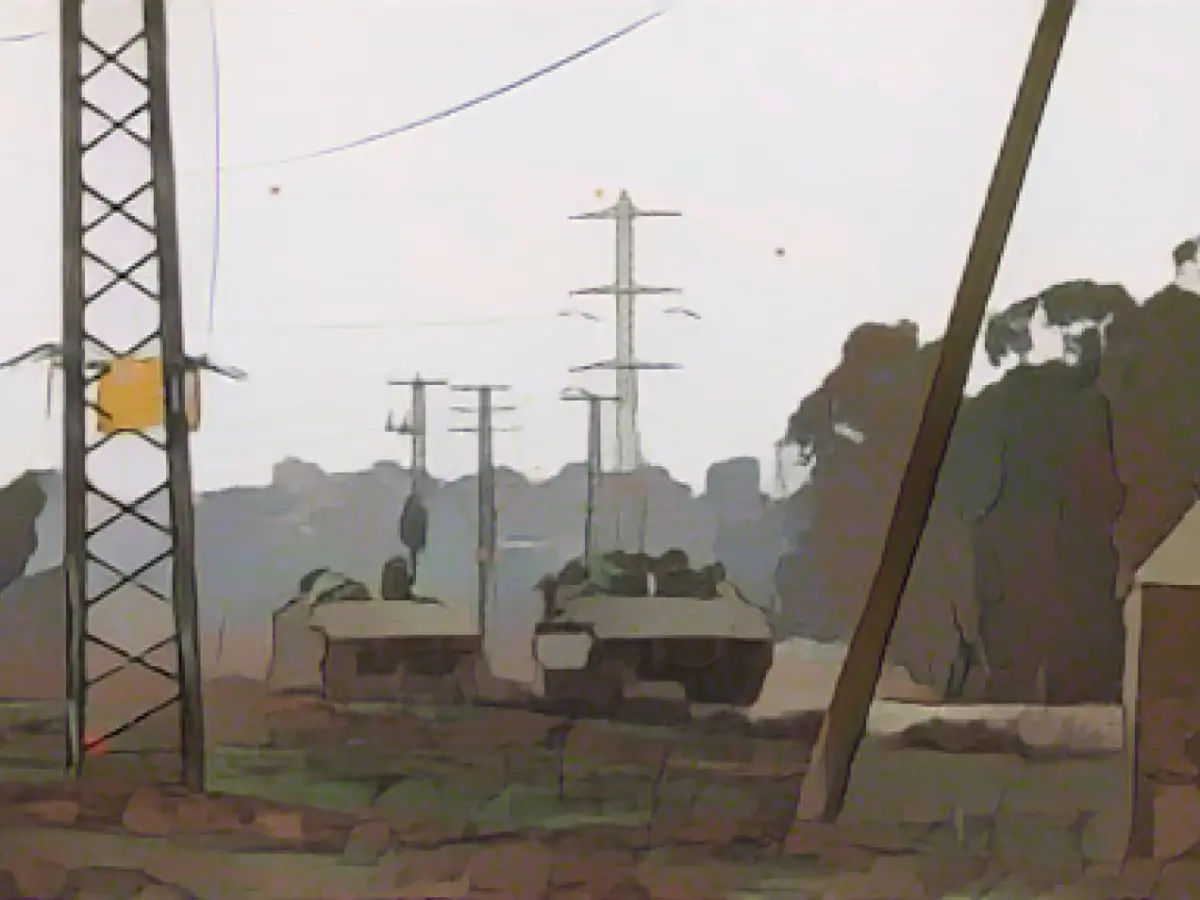Despite UN vote: fighting between Israel and Hamas in the Gaza Strip continues
Another air raid alert sounded in the city of Sderot and other southern Israeli towns on Wednesday. The Israeli army declared that most of the rockets fired by Hamas from the Gaza Strip had been intercepted. The army also carried out an airstrike on a militant cell in Shejaiya, a neighborhood in the city of Gaza in the northern Gaza Strip, "which was in the process of firing rockets at Israel".
The Israeli army also announced that 115 Israeli soldiers had been killed so far in its offensive against Hamas militants in the Gaza Strip, ten of them in battles in the north of the Palestinian territory on Tuesday alone.
According to the Hamas-controlled Ministry of Health, at least 50 people were killed in Israeli air strikes. The attacks took place in Gaza as well as in Nusseirat and Deir al-Balah in the center and in Rafah and Chan Junis in the south, where Israel suspects Hamas leaders and the hostages they are holding.
More than two months after the start of the war in the Gaza Strip, the UN General Assembly in New York voted last night in favor of a non-binding resolution calling for an immediate humanitarian ceasefire. 153 of the 193 member states voted in favor, ten against, including the USA and Israel. Both argue that a ceasefire would play into the hands of Hamas. 23 member states abstained, including Germany.
The Federal Foreign Office justified its abstention in the short message service X (formerly Twitter) by stating that the draft resolution concealed Hamas ' "barbaric" attack on Israel and "at least implicitly" questioned Israel's right to "defend itself against this Hamas terror". The ministry also rejected a "no", referring to "the suffering of the Palestinians" and the release of the remaining hostages. Germany is committed to "humanitarian pauses".
Hamas attacked Israel on October 7 and carried out the worst attack on the country since the founding of the state 75 years ago. According to Israeli reports, around 1,200 people were killed and around 240 people were taken hostage in the Gaza Strip, most of them civilians. Hamas is still holding more than 130 hostages.
Israel responded with massive air strikes on targets in the Gaza Strip and a ground offensive, announcing that it would destroy Hamas and free the hostages. According to Hamas figures in the Gaza Strip, which cannot be independently verified, more than 18,400 people were killed in the Israeli attacks, most of them women and children.
US President Biden said at an election campaign event in Washington on Tuesday that "most of the world" had backed Israel after the Hamas attack. "But they are about to lose that support because of the indiscriminate bombing that is taking place." At a later press conference, however, Biden was more cautious: the US stands with Israel, but there is great concern about "the safety of innocent Palestinians".
At the campaign event, Biden also denied that Israeli Prime Minister Benjamin Netanyahu's government was prepared to accept a two-state solution. "This is the most conservative government in the history of Israel," said Biden. It does not want a two-state solution and Netanyahu must "change his position" on the issue.
Biden had previously held talks with Netanyahu. Afterwards, Israel's head of government said that there was a "difference of opinion" between the allies on how to proceed after the end of the war in the Gaza Strip. He would not "repeat the mistake of Oslo". Netanyahu was alluding to the Oslo Accords signed in the USA in 1993, which gave the Palestinians autonomous administration in the West Bank and Gaza Strip.
Read also:
- This will change in December
- German activists speak out in Dubai on suffering in Israel and the Gaza Strip
- Nuclear fusion - hype or solution to energy problems?
- Budget crisis fuels debate on citizen's income - Bas warns against populism
- Despite the UN's call for a ceasefire in the Gaza Strip, the USA, like Israel, opposed the resolution due to fears it would benefit Hamas.
- In response to Hamas's attacks, the Israeli military carried out air attacks in the neighborhood of Shejaiya in the northern Gaza Strip.
- The truce proposal received support from 153 nations at the general assembly of the United Nations, leaving the USA and Israel in opposition.
- Hamas, who controls the Gaza Strip, argues that their attacks on Israel are a reaction to the Palestinian territory's overcrowding and strict Israeli blockade.
- More than 130 hostages are still being held in the Gaza Strip by Hamas, a situation that has drawn international concern and calls for action.
- Besides the USA and Israel, Germany voted against the UN ceasefire resolution, citing Hamas's "barbaric" attacks on Israel as a reason.
- Amidst the Gaza Strip conflict, Sderot, a city in southern Israel, is often targeted by Hamas rockets, causing fear and disruption for its residents.
- Gaza, home to more than 2 million people, has been under a strict Israeli blockade since 2007, which Hamas has used as a recruitment tool for militants.
- Recently, German activists in Dubai have drawn attention to the suffering in Israel and the Gaza Strip, urging world leaders to act in the interest of peace.
- In the midst of the violence, Palestinian territories like the Gaza Strip have experienced significant loss of life and displacement of civilians.
- By taking part in the UN vote, many nations aimed to send a message to both Israel and Hamas, expressing their desire for a peaceful resolution to the conflict.
- Joe Biden has publicly criticized Israel's response to the Hamas attacks in Gaza, emphasizing the safety of innocent Palestinians as a top priority.
- Despite the differences in stance, the USA maintains a close relationship with Israel, signifying the complexities and challenges inherent in resolving the long-standing conflict in the Gaza Strip.
Source: www.stern.de







